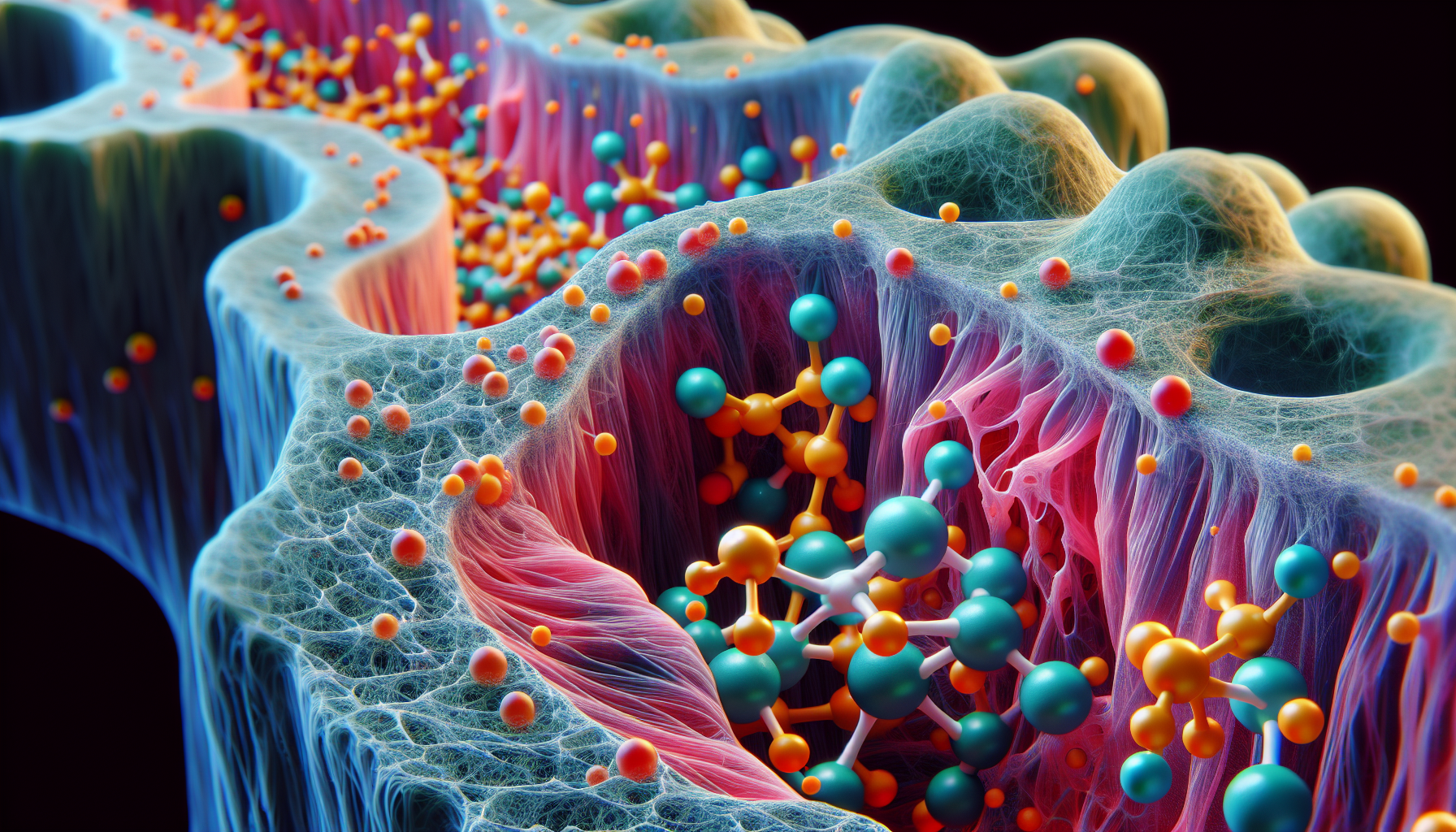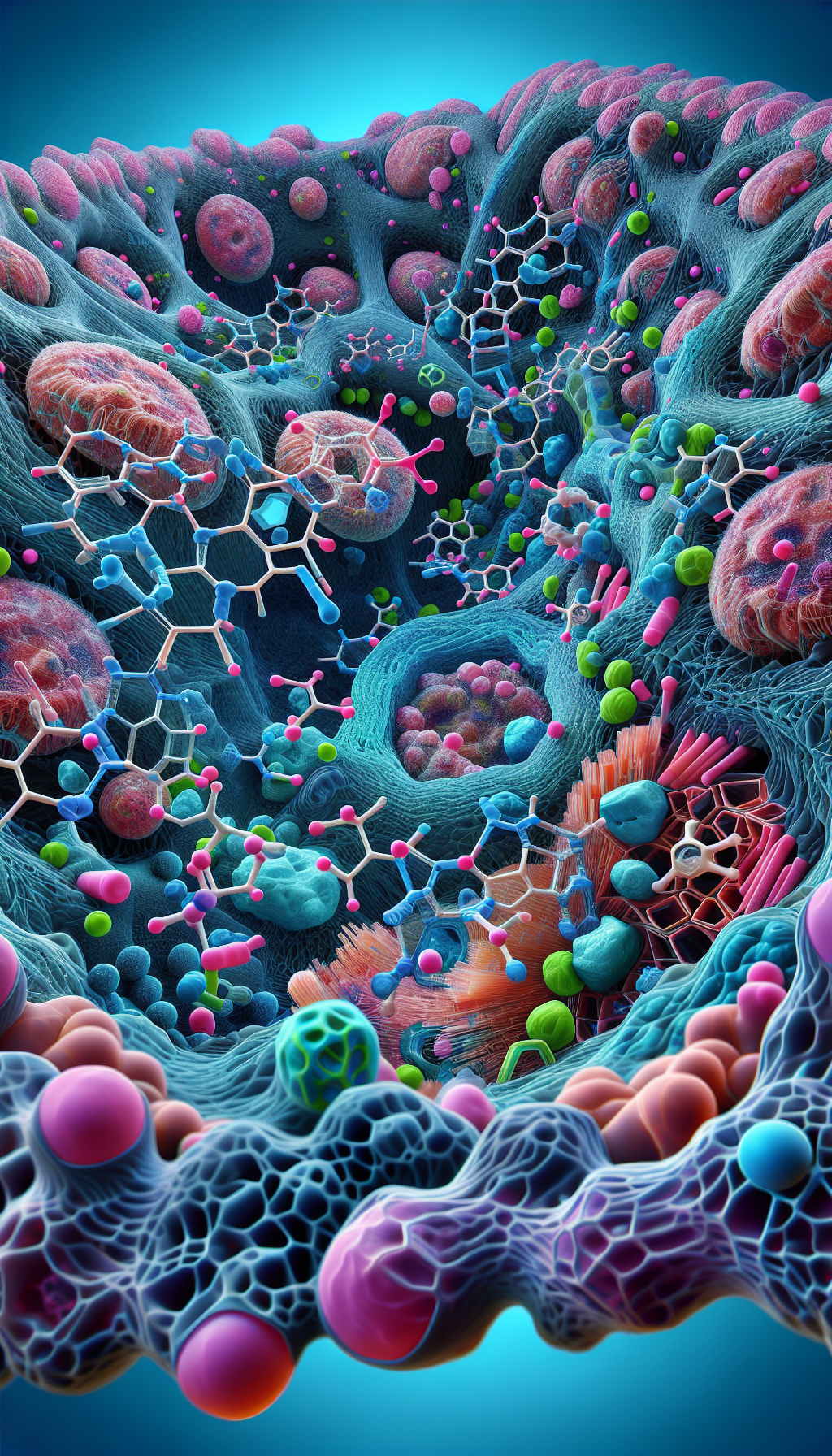The human skeletal system is a remarkable structure, providing the body with support, protecting vital organs, and facilitating movement. However, like any other part of the body, bones can sustain damage due to injury, illness, or wear over time. The process of bone repair and regeneration is a complex one, involving a delicate balance of biological processes. In recent years, there has been increasing interest in the role that antioxidants play in this process. Antioxidants are known for their ability to neutralize free radicals and oxidative stress, which can otherwise lead to cellular damage. This article delves into the fascinating intersection of antioxidants and bone health, highlighting the latest research and practical tips for supporting bone repair and regeneration.
Understanding Bone Repair and Regeneration
The human body has a natural ability to heal and regenerate bone tissue, a process that is essential for recovering from fractures and maintaining bone strength throughout life. Bone repair involves several stages, including inflammation, bone production, and bone remodeling. During the inflammatory phase, immune cells rush to the injury site to remove debris and prepare for new tissue growth. Following this, osteoblasts, the bone-forming cells, begin to synthesize new bone matrix. Finally, during the remodeling phase, the new bone is sculpted into its final shape and structure.
The Role of Antioxidants in Bone Healing
Recent research suggests that antioxidants play a crucial role in each stage of bone repair. Antioxidants help reduce oxidative stress, which can impede the healing process. Oxidative stress occurs when there is an imbalance between free radicals and antioxidants in the body, leading to cellular damage. By neutralizing free radicals, antioxidants help protect bone cells and support the healing process.
Combatting Inflammation with Antioxidants
During the initial phase of bone healing, inflammation is necessary to start the repair process. However, excessive inflammation can be detrimental, causing further damage and delaying healing. Antioxidants such as vitamin C, vitamin E, and polyphenols have been shown to modulate the inflammatory response, promoting a healthy balance that supports bone repair.
Enhancing Bone Formation through Antioxidant-Rich Diets
Osteoblasts, the cells responsible for bone formation, are sensitive to oxidative stress. Antioxidants can shield these cells from damage and promote their activity. Diets rich in antioxidants have been linked to increased bone density and improved bone healing. Foods such as berries, leafy greens, and nuts are excellent sources of natural antioxidants.
Remodeling and Maintenance of Bone Tissue
The final stage of bone repair involves remodeling the new bone tissue. Antioxidants are believed to play a role in this phase as well, helping to maintain the health of osteoclasts—cells that break down bone tissue—ensuring that they work in harmony with osteoblasts to achieve the proper bone density and structure.
Integrating Antioxidants into Bone Health Strategies
To harness the benefits of antioxidants for bone health, it’s essential to adopt a comprehensive approach that includes diet, lifestyle, and, if necessary, supplementation.
Dietary Considerations for Antioxidant Intake
A balanced diet rich in fruits, vegetables, whole grains, and lean proteins can provide a wide array of antioxidants. For instance, incorporating foods high in vitamin C, such as citrus fruits and strawberries, can contribute to collagen formation, which is crucial for bone strength.
Lifestyle Adjustments for Optimal Antioxidant Levels
Lifestyle factors such as exercise can influence antioxidant levels in the body. Regular physical activity has been shown to boost the body’s natural antioxidant defenses, contributing to overall bone health. Additionally, avoiding smoking and excessive alcohol consumption can lower oxidative stress, protecting bone tissue.
Supplementation When Necessary
In some cases, dietary intake may not be sufficient to meet the body’s antioxidant needs, especially during the bone repair process. Supplements containing vitamin D, calcium, and specific antioxidants like curcumin may be beneficial. However, it’s important to consult with a healthcare professional before starting any supplementation regimen.
For more in-depth information on bone health and how antioxidants integrate with other bone health strategies, you can explore Bone Health.
Supporting Research and Resources
Many studies have supported the role of antioxidants in bone health. For example, the National Institutes of Health has published findings on the antioxidant properties of vitamin C and its impact on bone density. Additionally, research from the International Osteoporosis Foundation provides insights into the benefits of a diet rich in antioxidants for maintaining bone health in postmenopausal women.
To better understand the role of specific minerals in bone density, the American Society for Bone and Mineral Research offers resources on the latest research in the field. For those interested in the nutritional aspects of bone health, the Academy of Nutrition and Dietetics provides guidelines on incorporating antioxidant-rich foods into a bone-healthy diet.
Practical Tips for Enhancing Antioxidant Intake
- Eat a Rainbow: Aim for a colorful plate with a variety of fruits and vegetables to maximize your antioxidant intake.
- Choose Whole Foods: Opt for whole, unprocessed foods over supplements when possible, as they offer a complex nutritional profile that supplements may not replicate.
- Focus on Quality Sources: Select high-quality, organic produce to reduce exposure to pesticides, which can contribute to oxidative stress.
- Cook Smart: Use cooking methods that preserve the antioxidant content of foods, such as steaming or raw preparations.
Conclusion
The role of antioxidants in bone repair and regeneration is an area of growing interest and research. By understanding the impact of oxidative stress on bone health and taking steps to enhance antioxidant intake through diet and lifestyle, individuals can support their body’s natural healing processes and maintain strong, healthy bones throughout their lives.
For further reading on bone health, consider the following resources from Avix Health: Best Practices for Bone Health Maintenance with Age, Nutrients That Support Bone Health Beyond Calcium and Vitamin D, and The Contribution of Micronutrients to Bone Density Enhancement.
Additional Visual Aid
To further illustrate the impact of antioxidants on bone health, consider this visual representation:
Embracing a lifestyle that incorporates antioxidant-rich foods, regular exercise, and mindful supplementation can pave the way for robust bone health and effective healing should injuries arise. Always remember to consult with a healthcare provider for personalized advice and to ensure your approach to bone health is comprehensive and tailored to your individual needs.



